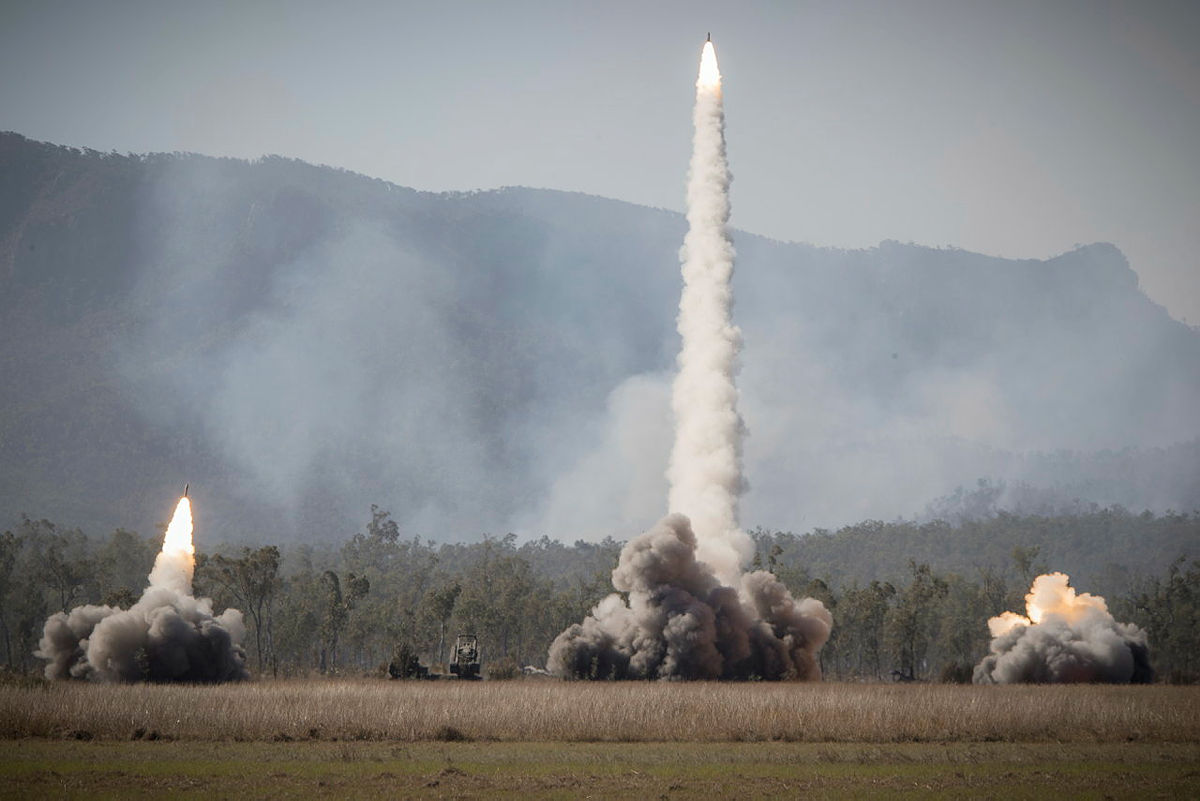
The Australian Army is set to dramatically boost its land-based guided missile capability with Australia’s decision to join a US-led program to develop the Lockheed Martin precision strike missile (PrSM). It’s a big step forward for the army, which had been limited to outdated towed artillery with a range of up to 30 kilometres. The PrSM, by contrast, has a range of between 60 and 500 kilometres, and can be launched from the M142 HIMARS (high-mobility artillery rocket system) that was demonstrated last month during the Talisman Sabre exercises.
Joining the US in developing the PrSM ticks the box for the government’s announcement in the 2020 force structure plan that the army will seek ‘procurement of a battery of long-range rocket artillery and missile systems, upgrades to the range of these systems to enable a land based operational strike capability, and the purchase of additional units to enable the capability to be expanded into a full regiment of three batteries’.
The acquisition of these new missiles from 2025 will also add an ability to hit moving targets, implying real-time targeting from sensor platforms such as high-altitude drones like the air force’s yet-to-be-delivered MQ-9B.
The army should also keep an eye on the potential offered by the space domain. The US is looking to shift its joint surveillance and target attack radar system, or JSTARS, from ageing and vulnerable E-8 aircraft to satellites based in low-earth orbit. A joint program with the US to co-develop a space-based radar system would make a lot of sense as we go forward with the PrSM, and neatly fit into the development of the Australian Defence Force’s space capability.
The PrSM also will be a natural candidate for sovereign manufacture, and it makes sense to establish production lines both for the Australian Army and to support the United States, as well as other allies that may acquire this capability.
The ability to strike at moving targets is important, not only for supporting land forces ashore, but also for defending maritime approaches. A 500-kilometre-range precision strike missile could form an inner layer for an anti-access and area-denial (A2/AD) system along Australia’s north and northwest coasts into the sea–air gap. Given that the system is based on HIMARS, a forward-deployed capability would enable the army to contribute to sea denial in support of expeditionary operations.
As significant as moving from a 30-kilometre range to 500 kilometres is, in an operational environment in which China is now deploying very long-range missile systems such as the DF-21 and DF-26, 500 kilometres is still a relatively limited range. Follow-on development will be needed to either extend the range of the PrSM further or acquire longer range complementary capabilities including hypersonic weapons to meet the requirements for long-range strike.
At the 2019 AUSMIN dialogue, Prime Minister Malcolm Turnbull and Defence Minister Marise Payne refused to consider basing US medium- and intermediate-range ballistic missiles in Australia. That decision was premature and sent the wrong signal to Washington.
China, meanwhile, has continued to expand its long-range missile capabilities and can now strike Australian targets from the island of Hainan. The decision to acquire the PrSM doesn’t answer that challenge.
The PrSM capability is a tactical capability, albeit with potential operational-level effect. But it needs to be seen as a first step towards addressing the army’s severe lack of long-range firepower. The battlespace will increasingly involve distant rather than close-quarters fighting, and long-range precision firepower will play a central rather supporting role. In this sense, the decision to acquire the PrSM is a good initial move.
These systems will need to be well defended against an adversary’s long-range strike capabilities, including the threat posed by advanced lethal drones and loitering munitions operating in large swarms. As demonstrated in last year’s conflict between Azerbaijan and Armenia, vehicles—be they armoured fighting vehicles and tanks, or fire support such as HIMARS—are vulnerable to loitering munitions that have very long ranges (the Israeli Harop, for example, used in the Armenia–Azerbaijan conflict, has a range of 1,000 kilometres), unless they’re protected by effective counter-systems, potentially including directed-energy weapons. So, investment needs to go into effective very low-level air defence for the army that allows substantial volumes of fire against persistent threats.
The government’s decision to acquire the PrSM is a good initial move that addresses a severe shortcoming for the army. But additional capabilities need to be considered, including resilient battlefield intelligence, surveillance and reconnaissance technology and effective self-protection measures for such valuable capabilities. It also opens up further opportunities for developing longer range capabilities to address gaps in the ADF’s strike potential, as well as in sovereign missile production. With this move, the army is heading in the right direction in preparing for future warfare.

